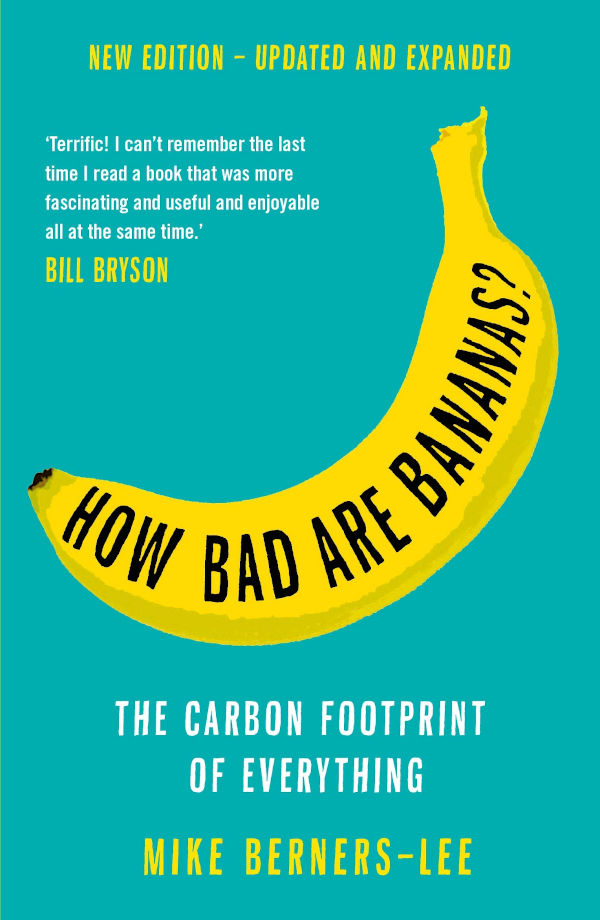So, how bad are bananas? As it turns out, a little bit worse than walking through an electric door, and a bit better than a newspaper, if that clears it up.
First published in 2010, and updated in 2020 to reflect new data and the increased severity of the climate crisis, How Bad are Bananas? provides a detailed list of around 100 items and their relative carbon footprint.
To account for the varying potency, atmospheric lifetime, and ratios of greenhouse gases emitted, numbers are presented in CO2e. It’s designed to give us something tangible to help us wrap our heads around and the wide range of items included should help you to fill in the blanks. However, Berners-Lee is honest about the accuracy of the numbers listed; they are the best estimates that can be made with the data available, while trying to take into account the many extraneous factors.
It’s intriguing to see what’s similar in terms of emissions, and what is wildly different. I had no idea, for instance, that a toilet roll has roughly the same footprint as your average supermarket delivery and that running your dishwasher is similar to that of a loaf of bread. Certainly something to think about.
A new inclusion for the 2020 version – and quite an apt one given the current situation – is the footprint of a Zoom call. Coming in at roughly 10g CO2e on the average laptop, it’s more than you might expect, but in terms of an alternative to long distance travel it’s saving literal tonnes.
The focus is not solely on carbon emissions, but also what can be done about it. The section on negative emissions gives a great breakdown of more widely-used carbon removal options, such as marine planting and enhanced rock weathering, and presents arguments for the pros and cons of each. While these might seem slightly removed from our day to day lives, there are options to invest in carbon offsetting projects, such as DACCS (direct air capture and carbon storage) and biochar.
A somewhat unavoidable limitation of this book is that it is inevitably more applicable for a specific location – in this case the UK – not only in terms of products consumed, but also the footprint involved in the manufacture and transport of the product. A flight for example (depending on length) would have roughly the same emissions irrespective of where it takes off or lands, whereas wine from Australia, Italy, or South Africa will have a lower footprint if consumed in the country or region it is produced.
The footprint of the average person in the UK can be broken down into four main components: food, travel, home energy and ‘services and stuff’. Each component is broken down into achievable suggestions and swaps for reducing your footprint, and Berners-Lee also provides handy links to some simple carbon calculators (https://footprint.wwf.org.uk/#/, https://bit.ly/2Jtn9b8), which can be used to see where you can make the biggest and most effective changes.
The book also emphasises that while being aware of our own carbon footprint and making efforts to reduce it are vital, by actively pushing for change from the government and workplaces, and encouraging friends and family to make more sustainable choices, the benefits are exponential.
Buy How Bad Are Bananas? from your local bookshop: https://booksellers.org.uk/bookshopsearch
Disclaimer: All views and opinions expressed are the author’s own and are not representative of, nor are endorsed by, any other individual or group.
Kate Groves and The Team






